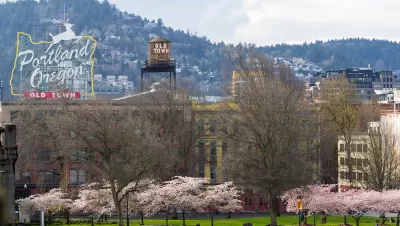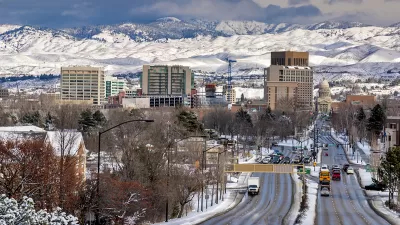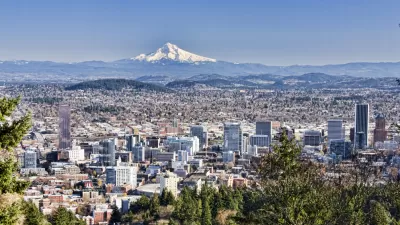The federal opportunity zones program is a double benefit in the state of Oregon, and legislators are wondering if the program is more effective in setting up tax havens than delivering investments in underserved areas.

"Oregon lawmakers will consider trimming a controversial capital gains tax break when they convene in Salem next month," reports Hillary Borrud.
The capital gains tax in question is the opportunity zones program initiated by the GOP tax reform bill of 2017.
"At issue is whether the opportunity zone program…truly incentivizes redevelopment in blighted areas or is gravy for investors in projects that would happen even without the incentive," according to Borrud.
The deployment of the program in Oregon attracted multiple instances of press attention in 2019. As Elliot Njus explained in February 2019: "Though the opportunity zone program is national, Oregon will feel the tax impact thanks to the state’s own tax code. It automatically mirrors the federal one, so Oregon is effectively offering the same discount a second time on Oregon tax bills."
Now Democratic legislators in Oregon are considering how to trim back that tax break. "House Bill 4010, introduced during an interim hearing Monday, would end the state tax break and require state economists to study the federal program’s effectiveness," according to Borrud. "They would report back to the Legislature by November on whether Oregon should reinstate some form of the state opportunity zone tax break."
News about the state of Oregon's actions to trim Opportunity Zones emerge the same week that the Acting U.S. Treasury Inspector General Richard Delmar announced an investigation of the program at the request of several members of Congress.
FULL STORY: Oregon Democrats want to trim controversial tax break for investors

Planetizen Federal Action Tracker
A weekly monitor of how Trump’s orders and actions are impacting planners and planning in America.

Congressman Proposes Bill to Rename DC Metro “Trump Train”
The Make Autorail Great Again Act would withhold federal funding to the system until the Washington Metropolitan Area Transit Authority (WMATA), rebrands as the Washington Metropolitan Authority for Greater Access (WMAGA).

DARTSpace Platform Streamlines Dallas TOD Application Process
The Dallas transit agency hopes a shorter permitting timeline will boost transit-oriented development around rail stations.

Renters Now Outnumber Homeowners in Over 200 US Suburbs
High housing costs in city centers and the new-found flexibility offered by remote work are pushing more renters to suburban areas.

The Tiny, Adorable $7,000 Car Turning Japan Onto EVs
The single seat Mibot charges from a regular plug as quickly as an iPad, and is about half the price of an average EV.

Supreme Court Ruling in Pipeline Case Guts Federal Environmental Law
The decision limits the scope of a federal law that mandates extensive environmental impact reviews of energy, infrastructure, and transportation projects.
Urban Design for Planners 1: Software Tools
This six-course series explores essential urban design concepts using open source software and equips planners with the tools they need to participate fully in the urban design process.
Planning for Universal Design
Learn the tools for implementing Universal Design in planning regulations.
Municipality of Princeton
Roanoke Valley-Alleghany Regional Commission
City of Mt Shasta
City of Camden Redevelopment Agency
City of Astoria
Transportation Research & Education Center (TREC) at Portland State University
US High Speed Rail Association
City of Camden Redevelopment Agency
Municipality of Princeton (NJ)





























